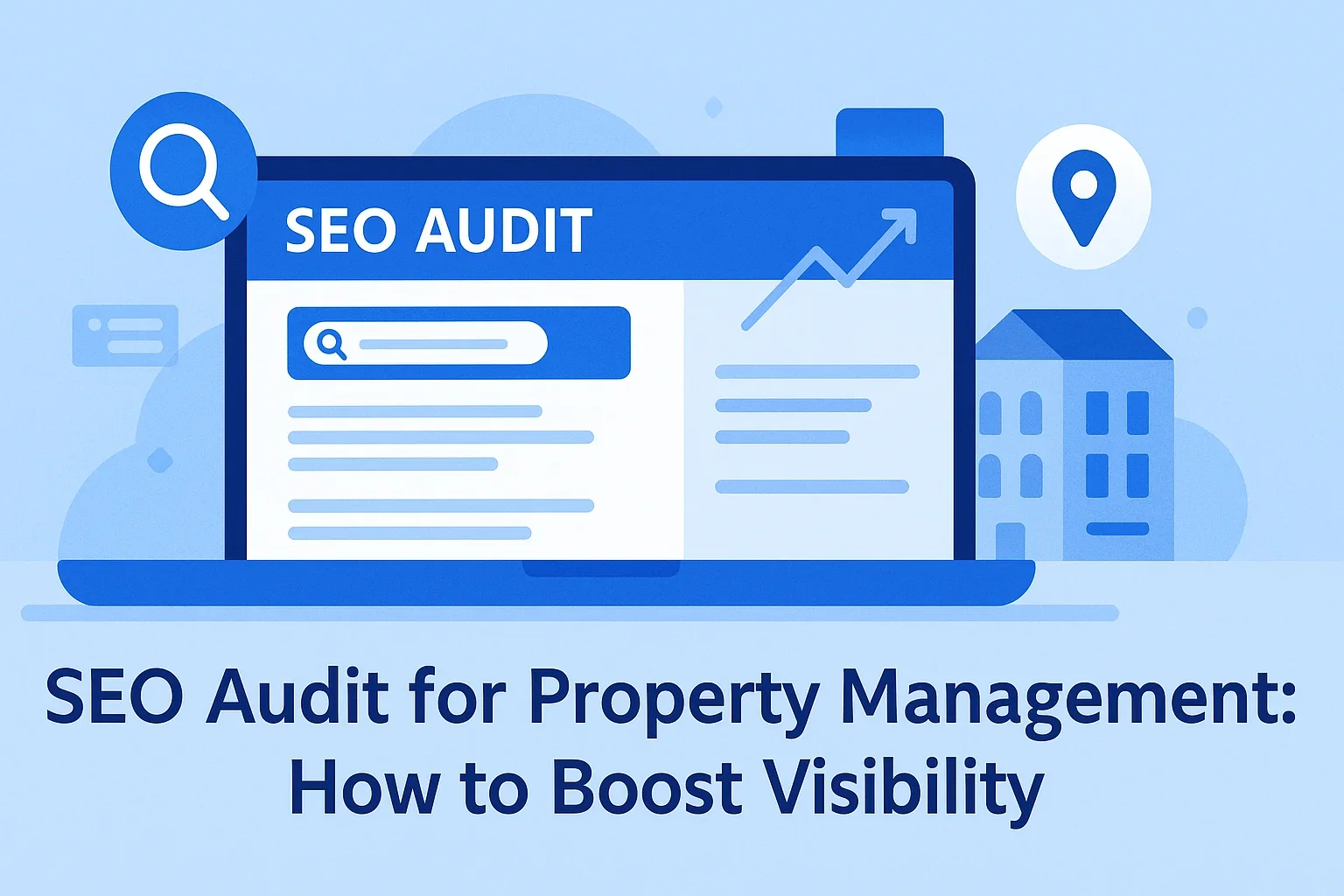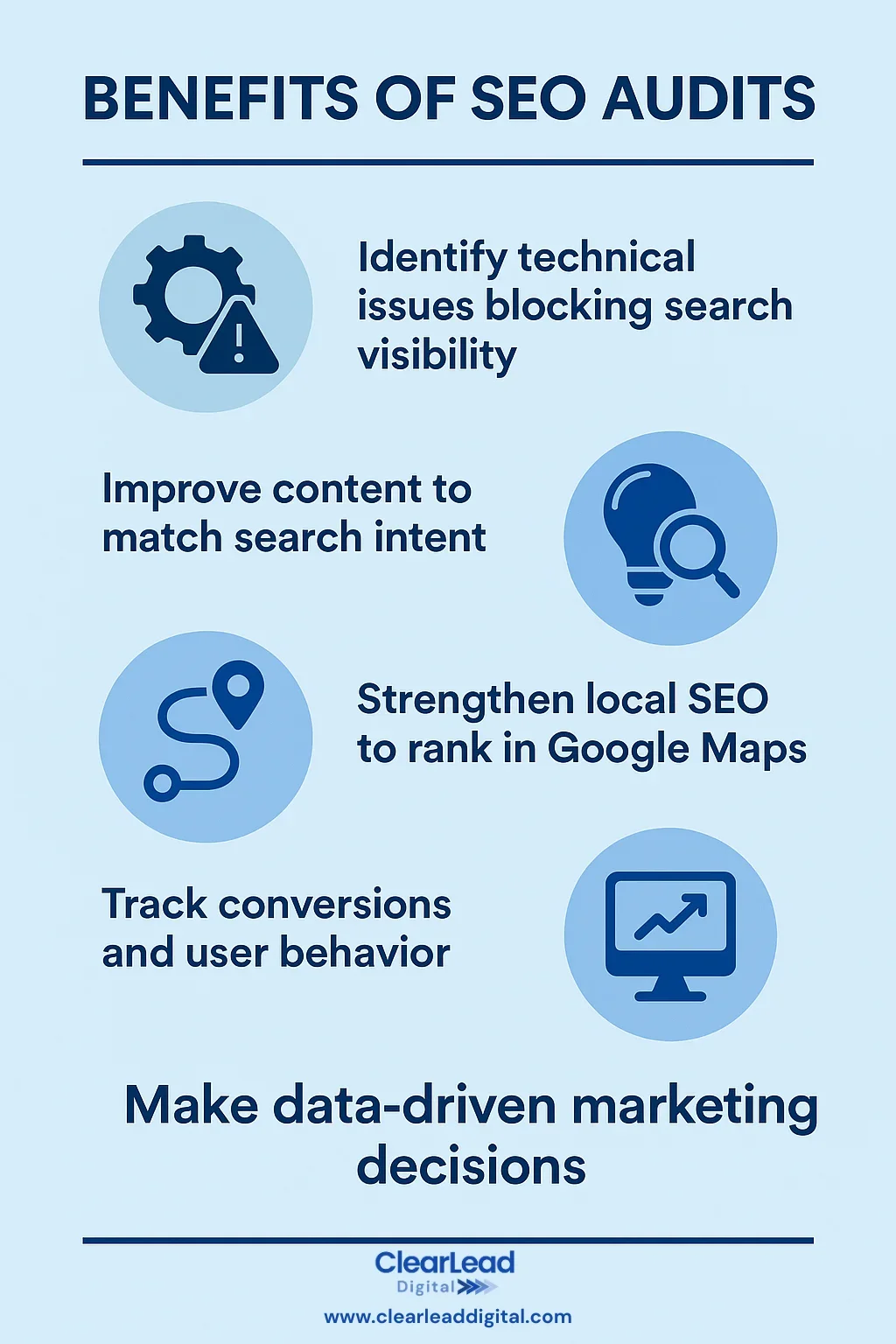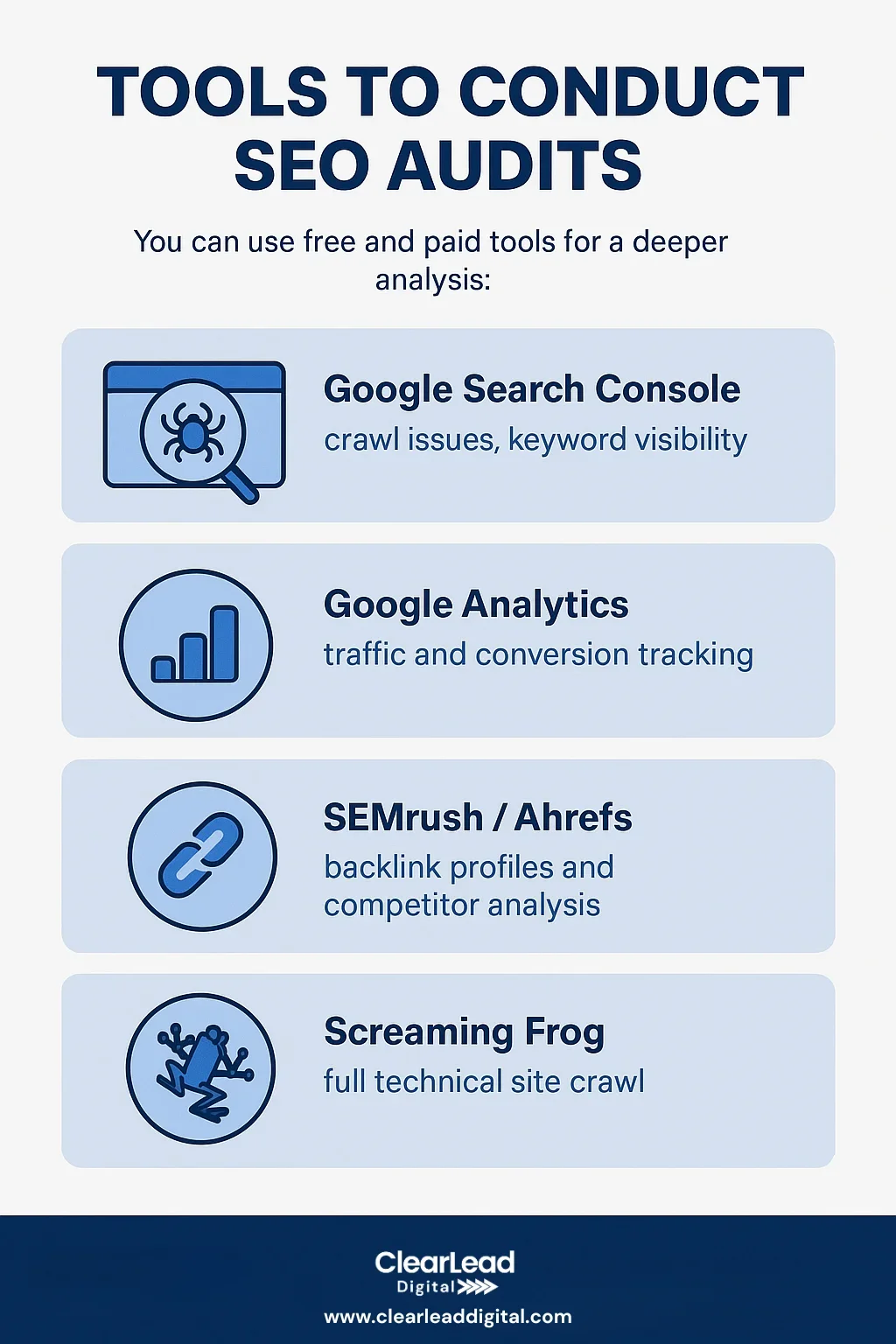SEO Audit for Property Management: How to Boost Visibility
In property management marketing, your website’s search visibility can directly impact the number of leads you generate. An SEO audit for property management uncovers technical issues, highlights content gaps, and shows you exactly what needs fixing to outperform competitors. With consistent SEO reporting, you can see measurable improvements, refine your strategy, and convert more visitors into clients.
Table of Contents
What Is an SEO Audit?
An SEO audit is a detailed review of your website’s structure, health, and performance in search engines. It identifies technical errors, content gaps, and off-site factors that may be limiting your visibility.
For property management companies, this is essential. SEO audits reveal why your site may not show up in local search results, why organic traffic is low, or why visitors aren’t converting into leads.
Why SEO Audits Matter for Property Managers
Property management clients search online for services before reaching out. If your site isn’t optimized, those prospects will find your competitors instead.
Benefits of SEO Audits:
Identify technical issues blocking search visibility
Improve content to match search intent
Strengthen local SEO to rank in Google Maps
Track conversions and user behavior
Make data-driven marketing decisions
Core Components of a Property Management SEO Audit
A complete SEO audit looks at three main areas:
1. Technical SEO
Technical issues can quietly harm rankings. A proper audit checks:
Broken links and redirect errors
Slow page load times
Poor mobile usability
Crawl and index coverage issues
XML sitemaps and robots.txt setup
2. On-Page SEO
On-page SEO focuses on page content and structure:
Title tags and meta descriptions
Keyword placement and density
Proper header hierarchy (H1, H2, etc.)
Image alt text and optimization
Clear, relevant content for users
3. Off-Page SEO
This evaluates your website’s reputation and authority:
Backlink quality and quantity
Social signals and brand mentions
Local citations in directories and maps
Curious where you rank for your top services? [Get Your Visibility Snapshot]
How the SEO Audit Process Works
Step 1: Identify Key Metrics
Track organic traffic, keyword rankings (especially local), bounce rate, session time, and conversions to understand user behavior.
Step 2: Evaluate Website Performance
Analyze mobile-friendliness, speed, crawl errors, and index coverage. Technical performance impacts both user experience and rankings.
Step 3: Analyze User Behavior
Review engagement metrics to find where users drop off. Combine SEO insights with conversion data to guide improvements.
Tools to Conduct SEO Audits
You can use free and paid tools for a deeper analysis:
Google Search Console – crawl issues, keyword visibility
Google Analytics – traffic and conversion tracking
SEMrush / Ahrefs – backlink profiles and competitor analysis
Screaming Frog – full technical site crawl
How SEO Supports Conversion Optimization
Good SEO attracts qualified traffic, and conversion rate optimization (CRO) converts those visitors into clients.
SEO-driven CRO tactics:
Optimize landing pages for high-intent searches
Add strong calls-to-action (CTAs)
Improve form design and mobile UX
Test headlines, buttons, and layouts
SEO Reporting for Property Management Companies
SEO audits are only the first step. Regular reporting helps you:
Monitor traffic and ranking changes
Track lead generation performance
Identify top-performing pages
Adjust strategy based on results
What Makes a Good SEO Report?
Clear visuals of keyword movement and conversions
Explanations of changes in performance
Actionable next steps
Property managers should review reports monthly to stay competitive.
Real SEO Wins for Property Managers
Local Rankings: A property management firm optimized service pages with location-based keywords and tripled map pack visibility.
Lead Growth: Fixing technical issues and improving site speed increased leads by 30% in three months.
Content Expansion: Creating city-specific landing pages boosted organic traffic by 300%.
Final Thoughts: Why You Can’t Skip SEO Audits
For property management companies, SEO audits aren’t optional—they’re critical for growth. Regular audits and performance reporting allow you to:
Fix ranking issues
Improve local visibility
Increase leads and ROI
Stay ahead of competitors
Start using SEO audits as a long-term marketing advantage instead of just a routine check.
Feeling overwhelmed? No worries, we’re here to help. Contact us and we will help you turnaround your SEO game!
Frequently Asked Questions
-
It’s a full website evaluation covering technical, on-page, and off-page SEO to improve rankings and attract more clients.
-
Quarterly audits are recommended, and always after major site updates or redesigns.
-
Google Search Console, Google Analytics, SEMrush or Ahrefs, and Screaming Frog.
-
By improving site speed, fixing errors, and optimizing for local keywords, your website attracts more qualified traffic that converts into leads.
-
An audit is a one-time evaluation of your site’s health. Reporting is the ongoing tracking of SEO performance over time.
Get the complete guide we used to help property managers dominate their market.



